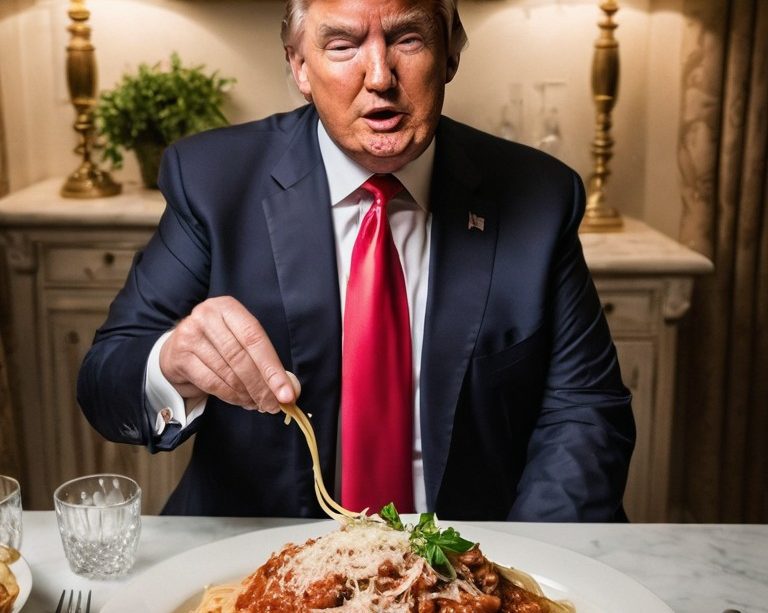The Trump Spaghetti Controversy: A Culinary Perspective

Introduction
The phrase ‘Trump Spaghetti’ may seem peculiar at first glance, yet it highlights a notable intersection between politics and food culture that has captivated social media and culinary enthusiasts alike. As the culinary world increasingly integrates various social and political narratives, this particular dish has ignited debate and dialogue surrounding appropriation and representation in gastronomy. Understanding this phenomenon is essential for grasping how food can reflect broader societal issues.
The Origins of Trump Spaghetti
Trump Spaghetti surfaced on social media platforms as a satirical reference to Donald Trump’s presidency and personality. Initially a meme, the dish evolved into an actual recipe—a simple plate of spaghetti garnished with a dollar sign made of cheese, intended as both humorous and critical commentary on Trump’s business-oriented approach to politics. This dish quickly gained traction as a potential menu offering at various cafes and restaurants, especially during political events or themed nights.
Public Reaction and Cultural Significance
Responses to Trump Spaghetti have been mixed, showcasing a broader trend of blending culinary artistry with political expression. Some view it as a light-hearted joke, while others perceive it as a trivialisation of serious political discourse. Critics argue that such dishes oversimplify complex issues and risk reducing political figures to mere caricatures. Conversely, proponents assert that satire is a valid form of engagement, promoting dialogue among people with varying political beliefs.
Online, the dish sparked countless memes and culinary experiments, leading to a social media frenzy that included photographs, recipe shares, and discussions surrounding food politics. Popular culinary influencers have started incorporating the dish into their content, showcasing how politics can flavour everyday meals.
The Future of Political Cuisine
As we continue to navigate a politically charged climate, the emergence of dishes like Trump Spaghetti is likely to persist. The blending of food and politics raises questions about identity, representation, and the power of culinary expression. Such dishes not only represent personal views but also serve as a medium for conversation—inviting diners to consider their beliefs and the societal implications behind them.
Conclusion
In conclusion, Trump Spaghetti represents more than just an amusing culinary creation; it embodies the intersection of food and politics in a way that resonates with many. As diners increasingly seek to engage with food that has a story or a message, the evolution of politically themed dishes may become more prominent. Whether viewed as a humorous commentary or a reductive stereotype, Trump Spaghetti invites us to reflect on the larger implications of how we experience politics through food.








